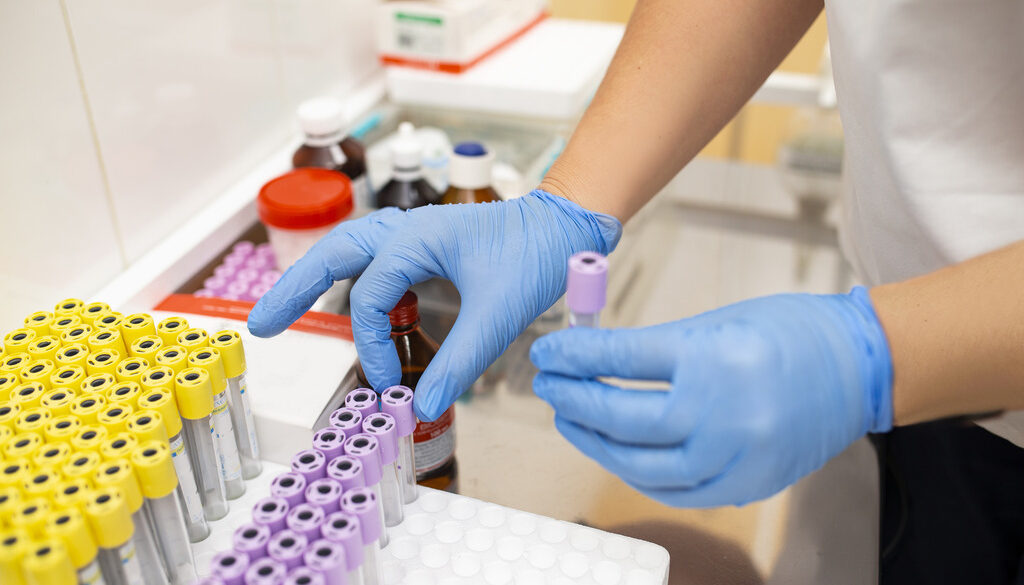Does cancer show up on a CBC?
A complete blood count (CBC) is one of the most commonly ordered blood tests in medical practice. It provides valuable information about the overall health of an individual by measuring various components of the blood, including red blood cells (RBCs), white blood cells (WBCs), hemoglobin, hematocrit, and platelets. While a CBC is a useful diagnostic tool, many people wonder whether it can detect cancer. The answer is not straightforward, as a CBC alone is not designed to diagnose cancer, but it can provide clues that may prompt further investigation.
What does a CBC measure?
A CBC evaluates three main types of blood cells:
- Red Blood Cells (RBCs): These cells carry oxygen from the lungs to the rest of the body. The CBC measures the number of RBCs, hemoglobin (the protein that carries oxygen), and hematocrit (the proportion of blood volume occupied by RBCs).
- White Blood Cells (WBCs): These cells are part of the immune system and help fight infections. The CBC measures the total number of WBCs and may also provide a breakdown of the different types of WBCs (neutrophils, lymphocytes, monocytes, eosinophils, and basophils).
- Platelets: These cell fragments are involved in blood clotting. The CBC measures the number of platelets in the blood.
Can a CBC detect cancer?
A CBC is not a definitive test for cancer, but it can provide indirect evidence that may suggest the presence of cancer or other conditions. Here’s how:
1. Abnormal White Blood Cell Count
- Leukemia: Leukemia is a type of cancer that affects the bone marrow and blood. It often leads to an abnormal increase in the number of white blood cells (leukocytosis). In some cases, the WBC count may be extremely high, and abnormal or immature WBCs (blasts) may be present.
- Lymphoma: Lymphoma, a cancer of the lymphatic system, can also cause an elevated WBC count, particularly lymphocytes.
- Low WBC Count: Some cancers or cancer treatments (like chemotherapy) can lead to a low WBC count (leukopenia), increasing the risk of infections.
2. Anemia (Low Red Blood Cell Count)
- Chronic Disease or Blood Loss: Many cancers, especially those affecting the gastrointestinal tract (e.g., colon cancer), can cause chronic blood loss, leading to anemia. A low RBC count, low hemoglobin, or low hematocrit on a CBC may prompt further investigation for underlying causes, including cancer.
- Bone Marrow Involvement: Cancers that spread to the bone marrow, such as leukemia or metastatic cancer, can interfere with the production of RBCs, leading to anemia.
3. Abnormal Platelet Count
- Thrombocytosis: Some cancers, particularly lung, gastrointestinal, or ovarian cancers, can cause an elevated platelet count (thrombocytosis).
- Thrombocytopenia: A low platelet count (thrombocytopenia) can occur in cancers that affect the bone marrow or as a side effect of chemotherapy.
4. Other Clues
- Infections: Cancer can weaken the immune system, making individuals more susceptible to infections. An elevated WBC count due to infection may prompt further investigation if cancer is suspected.
- Inflammatory Markers: While not part of a standard CBC, some cancers can cause inflammation, which may be reflected in other blood tests like erythrocyte sedimentation rate (ESR) or C-reactive protein (CRP).
Limitations of a CBC in detecting cancer
While a CBC can provide clues, it has significant limitations in diagnosing cancer:
- Non-Specific Findings: Abnormalities in a CBC are not specific to cancer. For example, an elevated WBC count can be caused by infections, stress, or inflammation, while anemia can result from nutritional deficiencies, chronic diseases, or other conditions.
- Cannot Identify Cancer Type: A CBC cannot determine the type or location of cancer. Further diagnostic tests, such as imaging studies (X-rays, CT scans, MRIs), biopsies, or specialized blood tests (e.g., tumor markers), are required for a definitive diagnosis.
- Early-Stage Cancer: In the early stages of cancer, a CBC may appear completely normal, as the disease may not yet affect blood cell counts.
When is a CBC used in cancer diagnosis and management?
While a CBC is not a diagnostic tool for cancer, it plays a role in several aspects of cancer care:
- Initial Evaluation: A CBC is often part of the initial workup for unexplained symptoms like fatigue, weight loss, or bruising, which may lead to the discovery of cancer.
- Monitoring Treatment: During cancer treatment, a CBC is used to monitor the effects of chemotherapy or radiation therapy, which can suppress bone marrow function and lead to low blood cell counts.
- Detecting Complications: A CBC helps identify complications such as infections, anemia, or bleeding disorders that may arise during cancer treatment.
- Follow-Up: After cancer treatment, a CBC is used to monitor for recurrence or long-term side effects.
Conclusion
A CBC is a valuable tool in medicine, but it is not designed to diagnose cancer. While it can provide clues that may suggest the presence of cancer, such as abnormal white blood cell counts, anemia, or platelet abnormalities, these findings are non-specific and require further investigation. A definitive cancer diagnosis typically involves a combination of imaging studies, biopsies, and specialized blood tests. Early detection and diagnosis remain critical for improving cancer outcomes, and a CBC is just one piece of the diagnostic puzzle.

